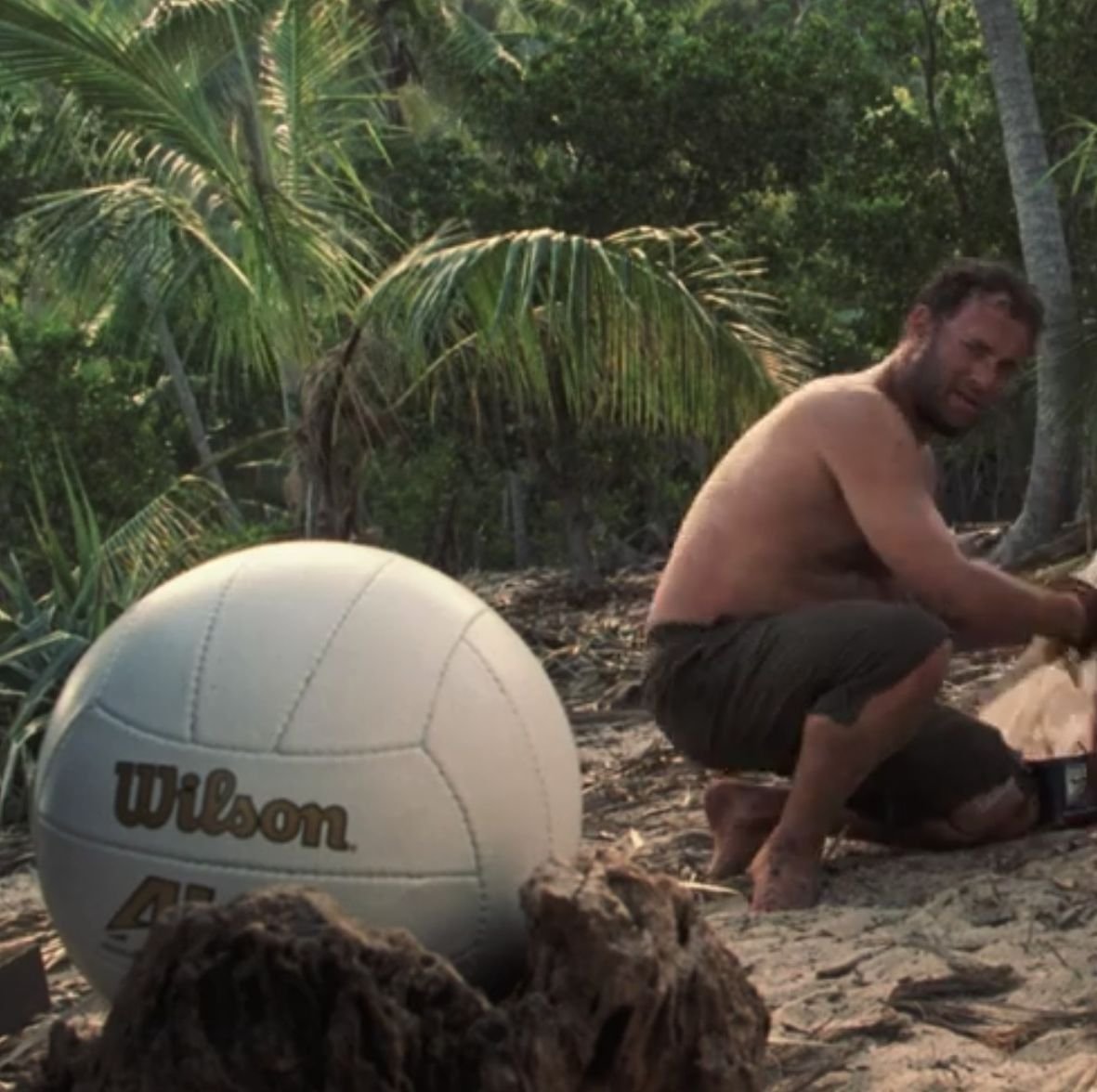Cast Away
I’ve been looking for a metaphor. You’d think I’d have a closet full by now, analogies out the wazoo, but I guess I don’t do metaphors anymore. At least gracefully.
But I looked at myself in the mirror the other day, observing not only the deterioration (I think I’ve visibly aged about 10 years since Covid) but the future. My hair hasn’t been cut in a year, and my beard is getting awfully bushy and big, and suddenly I saw Tom Hanks after he’d been stranded about a year in Cast Away.
And this works for me. I got Covid, and then after weeks and then months, I got lost. I’m actually fairly comfortable, safe from the elements, able to feed myself, not suffering from much except loneliness. I’m somehow adrift here, able to see the world but unable to get there. I need a volleyball, maybe.
The other options were a snow globe and an escape room. As I said, my metaphor game needs work.
But even given symptoms that have worsened significantly over the past two months (I didn’t know this might happen, but after researching it’s fairly common in long Covid), I’ve been spared what might have been the most debilitating symptoms, serious depression and anxiety. This is so common, and people struggle mightily.
Fortunately, I was given an antidepressant by my physician (I resisted this for a long time) in August, and then another one once I had long Covid, and my mood is pretty good. It’s certainly stable, and while this gets kinda depressing it’s not nearly as bad as it could be. I don’t exactly whistle, but I think you get it. I’m doing OK.
Every morning when I wake, I grab my phone and take a test. It’s an app developed by a Long Covid researcher, based on the correlation between heart rate variability and fatigue severity. To be honest, I’m not quite sure what heart variability means, other than literally, and the app is in beta, but after taking readings for a week to establish a baseline, it now tells me when I’m out of range and what that might mean (the one on the right here is the most severe; lately it hangs around 3, which is still bad and the app tells me to take it easy).
And that’s all I really have in terms of objective metrics, other than my oxygen saturation and then just keeping an eye on my pulse and taking my blood pressure occasionally. I try to follow the research but my brain has limitations these days, and then sometimes I just run out of context, but it seems very likely now that a significant part of this disease process is the formation of clots in our tiny blood vessels, reducing the oxygen that goes to our brains and other organs. Maybe something else will show up, but for the time being all my symptoms make sense based on this: Muscle soreness, increased shortness of breath with minimal exertion, cognitive troubles, and fatigue all fit in my mind.
Not good.
This doesn’t really help me, of course. The most profound discovery I’ve made with this has been that I can’t exercise my way out of it. I can’t reverse deconditioning because deconditioning is not really the problem. Although try telling that to physicians (not mine, but I hear stories).
But it gives me something to hang my hope on. Lots of people do improve; it just tends to take at least a year to 18 months post initial infection. That said, this is pretty much a perfect time to be dealing with this, as far as I’m concerned. I feel young enough and still fit enough to deal with the aftermath, which might be whistling past the graveyard but it’s all I’ve got.
(I think I mentioned I don’t actually whistle, figure of speech)
I’m not really interested in documenting my cans and can’ts here, and I’m not a fan of silver-lining searching (sometimes things just suck), but there are good things. I’ve been watching/listening to lectures from various academics on subjects that I don’t know much about, and it’s been fun and really enlightening. I’ve probably worked through 75 hours of lectures in the past months, mostly history (great civilizations, the development of language, the early Middle Ages in England, the significance of the year 1066, prehistoric North American cultures, and much more). I can retain it, too, apparently.
Reading is harder but I’ve managed to work through a few books and a lot of Wikipedia diving, along with current events. I have a hard time watching movies but I’m able to binge series (there’s something about resetting after every episode that feels more approachable to me). Music is also hard but occasionally I can listen to an hour or so.
I don’t drive. I use a walking stick/cane to get around without falling (it happens). I try to do small chores as I can, and Julie and John have covered a lot. It’s OK here, really. I sometimes have to step back and acknowledge that I’ve been sick for six months now, that this is unusual and hopefully won’t last forever, but that seems to work for now.
And hey, thanks for reading. As I said, my biggest problem might be loneliness, and this sort of communication helps. It’s hard to talk and I can’t imagine video calls at the moment, and it’s like pulling teeth to write this, but it’s a good thing. And I’m going to look into getting a volleyball, just in case.







